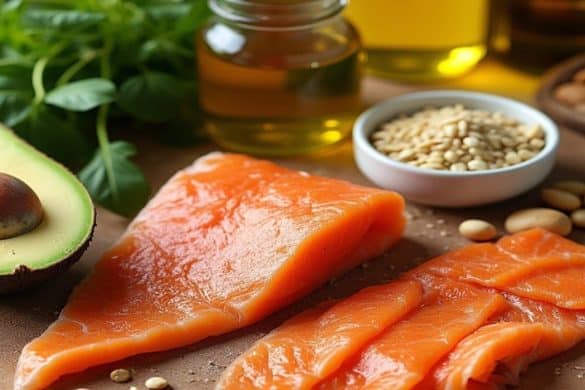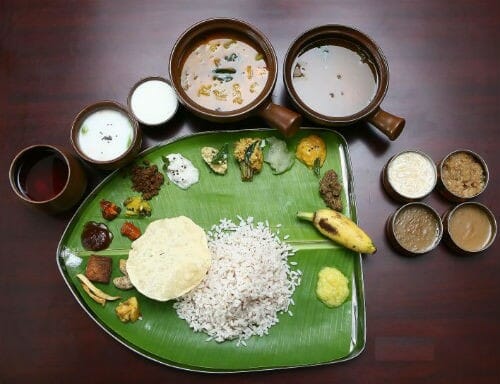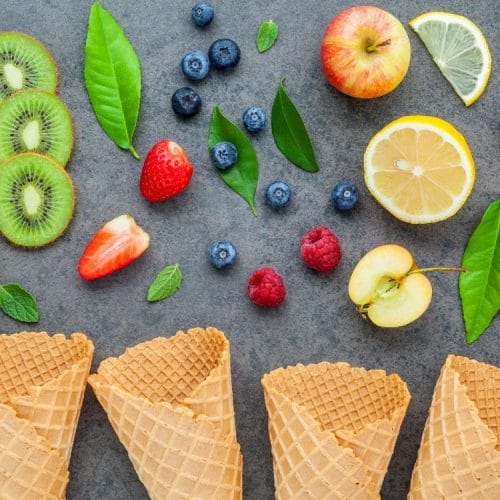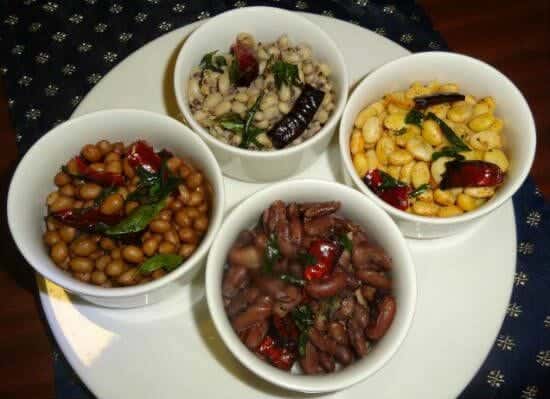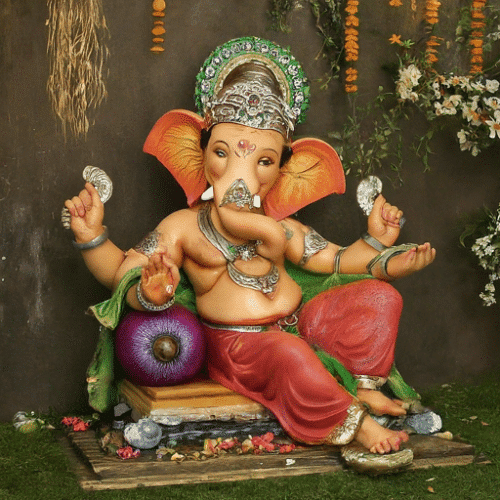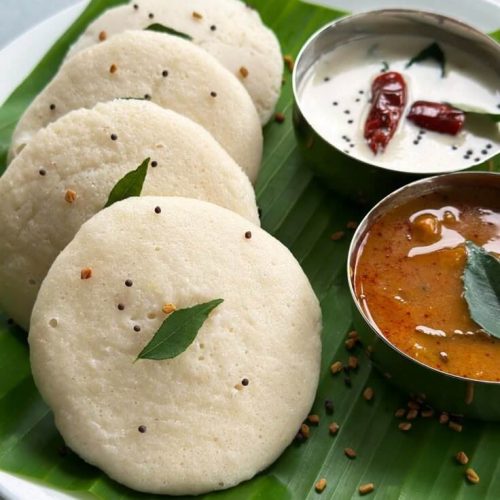Becoming a MasterChef is a culmination of aspiration, skill, and relentless dedication. This journey takes you through the fascinating world of culinary arts as you hone your craft, immerse yourself in global cuisines, and evolve as a creative, precise, and passionate professional. This guide serves to illuminate the path to becoming a MasterChef – a title that represents the epitome of culinary prowess. The process is nuanced – from developing an unmistakable love for food, equipping oneself with advanced culinary abilities and leadership competencies, and gaining relevant experience, including years of experience, to carving out a unique culinary identity. One must remember that while television may have glamorised the title ‘MasterChef,’ achieving this distinction has less to do with glamour and more with grit, grind, and consistent growth.
How To Become MasterChef: Steps To Succeed
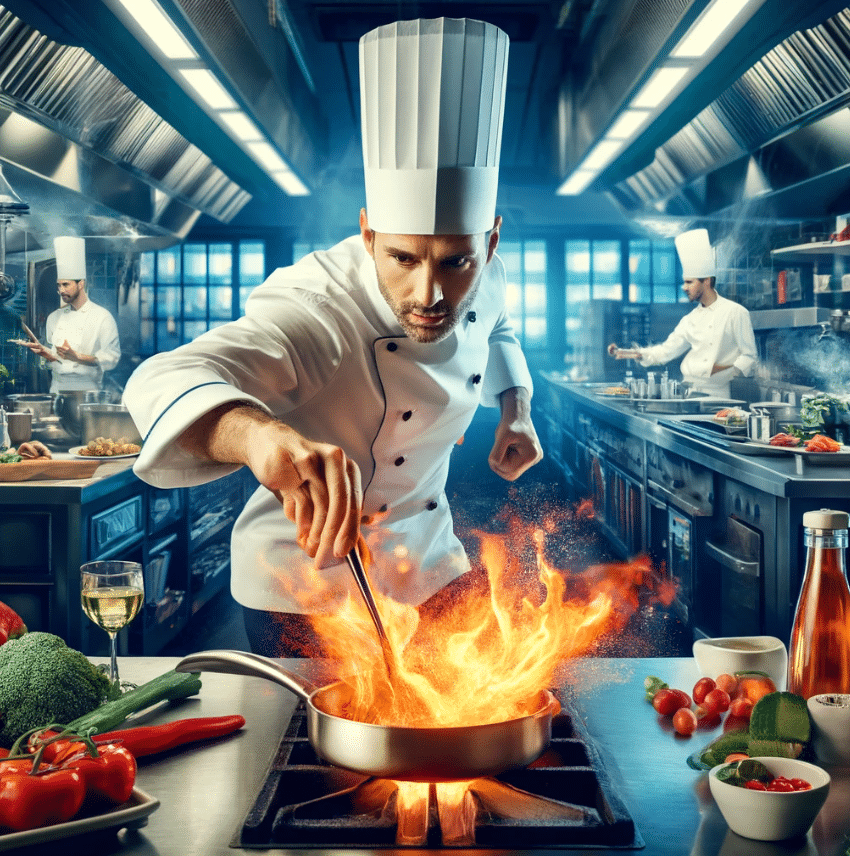
man cooking food
At the heart of every MasterChef are traits that render depth and flavour to their art:
- They have an abiding passion for cooking, which fuels their relentless quest for culinary excellence.
- They are creative, which allows them to craft unique gastronomic experiences.
- They have a keen attention to detail, where quality and precision are non-negotiable.
- They can exercise effective time management and stress handling, indispensable in a high-pressure kitchen environment.
Passion for Cooking
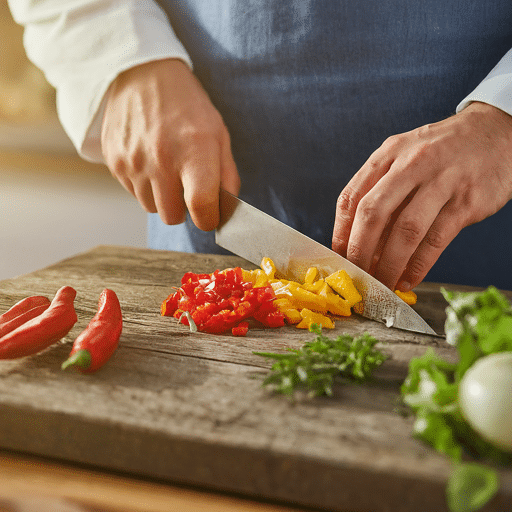
Cooking with detail
Passion is the very first step towards any successful endeavour. In the culinary world, this resonates even more profoundly. A MasterChef’s love for food forms the base upon which their culinary empire is built. This passion keeps them motivated through long hours in the kitchen, navigates them through the complexity of flavours and textures, and helps them become lifelong learners in an ever-expanding culinary universe. Passion also makes them push their boundaries, continuously innovate, and create dishes that are examples of craftsmanship.
A master chef’s passion is often palpable—it translates into their food and offers an unforgettable experience to anyone who has the pleasure of tasting their art.
Creativity
In the culinary world, being creative surpasses the act of simply decorating a plate. It embodies envisioning a dish from start to finish, working out the perfect balance of flavours, and presenting it appealingly. For a MasterChef, creativity involves thinking out of the box and understanding and respecting traditional methods and recipes. Essentially, it’s about blending old-school techniques with contemporary currents, thus crafting beautiful, tasteful masterpieces that resonate deeply with people. Risks and experiments are at the heart of MasterChef’s creative throne, resulting in culinary innovations that become trends globally.
Attention to Detail
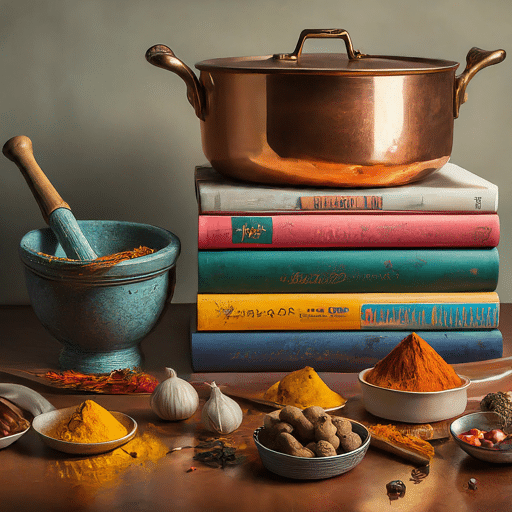
Brining attention to detail
A MasterChef’s journey is deeply rooted in meticulousness and precision. These might seem minor details, but combined, they form the recipe for incredible food.
Attention to detail varies from selecting the freshest produce, measuring ingredients accurately, and noting the cooking temperature and time to the more intricate facets like achieving a perfect julienne cut or noticing the subtle change in colour while caramelising onions. Each detail matters, for these nuances culminate into a dish that reflects good quality and the commitment and finesse of the MasterChef behind its creation.
Time Management and Stress Handling
In the fast-paced world of culinary arts, time management is the backbone, and a MasterChef invariably excels at this skill. Ideally, timing a steak’s sear or efficiently organising the kitchen’s workings and proficiency in managing time can make or break a dining experience. This, combined with the stress handling skill, charts the success course for any MasterChef. Some tactics include:
- Creating a workflow: Planning helps you navigate even the busiest dinners.
- Prioritising tasks: Focus on tasks according to their urgency and importance.
- Delegating: A successful kitchen runs on teamwork.
- Keeping calm: High-pressure situations are inevitable in the kitchen. A level-headed approach can save the day.
Also Read: Top Indian Chefs on TV
Top Culinary Schools for Aspiring Chefs
To become a MasterChef, selecting the right culinary school is crucial. While many renowned culinary institutes exist globally, a handful have consistently emerged as leaders, be it in their curriculum, faculty, or placement opportunities.
| Institute Name | Location | Program Highlights |
| Le Cordon Bleu | Paris, France | offers a range of programs specialising in French culinary techniques. These include internships for practical experience. |
| The Culinary Institute of America | USA | She is known for her intensive hands-on approach and many specialisations. There are internship opportunities at the world’s finest kitchens. |
| Institute of Culinary Education | New York, USA | Offers varied specialities, including pastry and baking arts -possible internship placements at award-winning restaurants. |
| The American Culinary Federation (ACF) | USA | Provides rigorous certification programs, including the esteemed Certified Master Chef certification. |
These culinary schools offer extensive training, equipping students with essential tools to navigate the culinary world successfully.
Types of Courses and Certifications
Formal education can take different forms based on interest, career goal, and personal commitment. These include:
- Diploma Courses in Culinary Arts: These courses are focused on basic culinary principles, different cuisines and knife skills.
- Bachelor’s Degree in Culinary Arts: These degrees provide a more comprehensive understanding, covering areas like gastronomy, nutritional needs, menu planning, and kitchen management.
- Master’s Degree in Culinary Arts: Ideal for individuals interested in specialised knowledge or aiming for leadership roles in the future.
- Certifications: Organisations like the American Culinary Federation offer multiple certification levels, including the highly esteemed Certified Master Chef distinction.
The choice of the course should be guided by one’s passion for cooking and career aspirations.
Gaining Experience and Skill Development
While formal education provides a solid foundation, gaining practical experience in a professional kitchen setting is indispensable for a successful professional career. This involves internships and apprenticeships under experienced chefs, working in different kitchen stations, and honing skills on the job. It also includes participating in cooking competitions, as these platforms offer exposure, recognition, and an opportunity to learn from contemporaries.
Internships and Apprenticeships
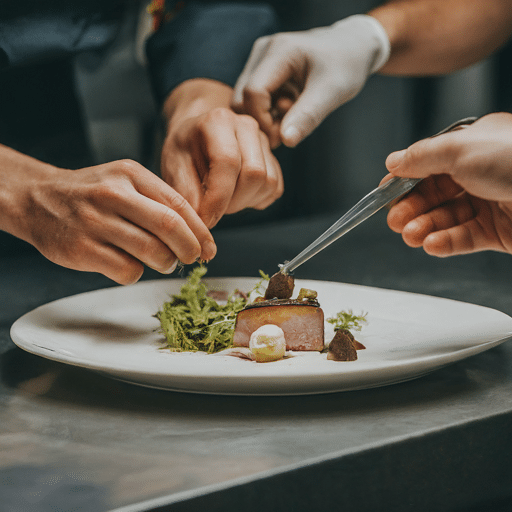
group of chef
For any aspiring MasterChef, internships and apprenticeships are pivotal. They provide:
- Hands-on experience.
- Realistic insights into kitchen dynamics.
- The opportunity to apply theoretical knowledge practically.
- First-hand exposure to various cuisines and culinary styles.
They are the stepping stones that initiate your interaction with the food industry. Landing an internship or apprenticeship at a reputed place grants invaluable experience. It offers a chance to work with professionals at the top of their culinary game.
Over time, these experiences develop into a treasure trove of knowledge, shaping one’s culinary style and laying the groundwork for becoming a celebrated chef.
Finding a Mentor
A mentor can profoundly influence an aspirant’s culinary journey. Finding a mentor, preferably a seasoned chef, offers guidance through the highs and lows and fosters a much deeper learning perspective. A mentor’s wisdom, be it their secret culinary technique or how they handle a kitchen crisis, can sculpt an aspirant’s outlook towards the culinary world. Importantly, a mentor also exposes an aspiring chef to culinary philosophies, trends, and the fine art of balancing tradition with innovation in the culinary world. Above all, through a mentor’s guidance, aspirants learn to perfect their craft, shaping their journey towards becoming a MasterChef.
Participating in Competitions
Chef competitions or cook-offs are platforms where culinary skills are tested under pressure. They are instrumental in a chef’s growth for several reasons:
- Improves Skill: Participants improve their culinary technique and presentation skills.
- Encourages Innovation: Competitions often require chefs to create creative dishes under time pressure.
- Networking: They provide exposure and networking opportunities among industry professionals.
- Boosts Confidence: Winning or being recognised in a competition boosts morale and confidence.
From friendly cook-offs to professional culinary competitions, these platforms can pivot your career growth and propel you further on your path to becoming a MasterChef.
Also Read: Kitchen Hacks for Busy Home Cooks
Building your Personal Brand as a MasterChef
Establishing a distinct culinary identity is crucial for every MasterChef. It’s about creating your own culinary language that reflects your gastronomic philosophy. This personal brand is crafted through your unique cooking style, the flavours you bring to the table, and your approach to food. Building this brand begins with developing and showcasing a distinctive culinary style to the world, primarily through a portfolio. Networking lets the industry participants recognise and appreciate your brand, thus escalating your career to new realms of culinary excellence.
Developing your Culinary Style
At the crux of every MasterChef’s appeal is an unmistakable culinary style that resonates with their philosophies. Over years of training, cooking, and experimenting with ingredients, a chef naturally develops this style. It serves as the culinary fingerprint that makes their creations instantly recognisable. This style embodies a chef’s preferred cooking techniques, ingredient choices, plating aesthetics, and overall approach to food.
Whether it’s about giving a modern twist to traditional recipes or infusing global flavours with local ones, your culinary style becomes a reflection of your skills, creativity, and influences. This personal style eventually becomes a significant part of your brand.
Creating a Portfolio
A master chef’s portfolio is more than just a collection of their best dishes. It’s a storybook that narrates their journey, skills, style, and innovation in the kitchen. Creating a portfolio involves documenting your work – recipes you’ve developed, dishes you’ve cooked, menus curated, awards won, articles written, and more. This portfolio becomes a testament to your experience, knowledge, and culinary excellence. An impressive portfolio can be an effective tool in introducing your brand to industry professionals, potential employers, or future patrons and holds the power to enhance your career prospects substantially.
Networking with Industry Professionals
In the culinary world, networking is invaluable. It’s about connecting with people who share your passion, can offer insights, open doors to new opportunities, or collaborate on exciting projects. Strategies for productive networking with industry professionals include:
- Events and Workshops: Attending culinary events, food festivals, workshops, or seminars can put you face-to-face with industry stalwarts.
- Social Media: Social media can connect you with fellow chefs, critics, food bloggers, and food enthusiasts globally.
- Memberships: Joining culinary organisations or associations can provide networking platforms and keep you updated with industry trends.
- Mentorships: A meaningful mentorship can foster personal connections and open many networking avenues.
Networking helps you gain recognition and gives you a broader industry perspective, essential for long-term career growth.
Additional Certifications
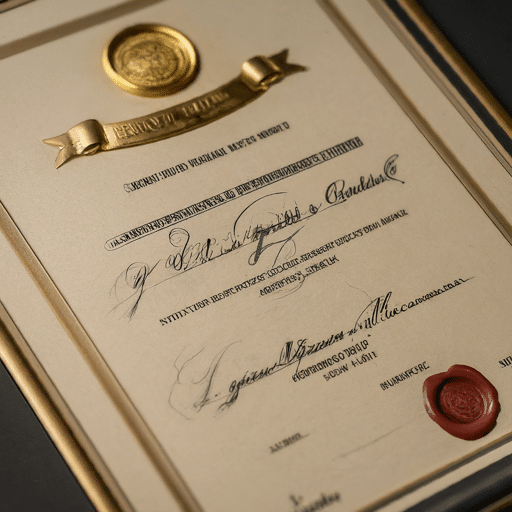
culinary certifications and awards
Enhancing your skill set with additional certifications can be highly advantageous as you navigate the culinary world. These certifications, provided by reputed culinary organisations, validate your skills and proficiency and exhibit your commitment to continual learning.
The American Culinary Federation (ACF) offers various esteemed certifications such as Certified Sous Chef, Certified Executive Chef, and the pinnacle of them all – Certified Master Chef, as well as certificate, diploma, and bachelor courses in cuisine art from top hotel management institutes in India.
These certifications are widely recognised across the industry. They can help aspiring chefs develop skills based on their interests and capabilities.
Certified Master Chef (CMC)
Certified Master Chef (CMC), bestowed by the American Culinary Federation (ACF), is arguably the most prestigious certification in the culinary industry, reflecting culinary expertise and skill at its apex. Earning this distinction involves mastering cooking techniques through passing a gruelling 8-day examination entailing over 130 hours of testing. The testing process is intense and demanding, encompassing everything from buffet catering, global cuisine, and baking to classical cuisine.
This distinguishes the CMC title from others, sending a clear message about the chef’s unparalleled culinary competency across the industry.
Other Specialised Certifications
Alongside the coveted CMC, several other specialised certifications can significantly shape a chef’s journey towards becoming a MasterChef. These include:
- Certified Sous Chef (CSC): Validates the chef’s competencies for a supervisory role in the kitchen.
- Certified Executive Chef (CEC): Validates the chef’s skill set in managing all kitchen operations.
- Certified Pastry Chef (CPC): Validates the chef’s baking and pastry-making proficiency.
- Certified Culinary Educator (CCE): Validates the chef’s ability to impart culinary education effectively.
Such specialised certifications not only boost a chef’s professional credibility but also demonstrate their dedication towards continuous learning and mastery over their craft.
Conclusion
The road to becoming a MasterChef can seem challenging, yet with a passion for cooking, technical skills, and relentless dedication, the journey becomes an exciting exploration of the culinary world. From nailing basic cooking techniques and graduating from an esteemed culinary school to gaining practical experience through internships, every step takes you closer to your MasterChef dream.
Building a personal brand, networking with industry professionals, and furthering your knowledge with certifications add to your burgeoning culinary repertoire. The crown – Certified Master Chef – is indeed the recognition of the pinnacle of your culinary journey.
Gratification in seeing your meticulously prepared dish bringing joy to its consumers and making lasting memories out of meals is the quintessential charm of being a MasterChef, adding flavour not just to food but to life.
Frequently Asked Questions
How long does it take to become a MasterChef?
Becoming a MasterChef is a valuable journey encompassing years of practice, formal education, skills honing, and extensive experience. The timeline varies with a chef’s pace of learning, exposure, and expertise, with a general range between 7 to 10 years.
Do I need formal culinary education to become a MasterChef?
While it’s possible to start as a self-taught cook, formal culinary education gives you a structured learning pathway, intense training, exposure to various cuisines, and an understanding of kitchen dynamics. Overall, it equips you to navigate the culinary world proficiently.
What is the difference between a chef and a MasterChef?
While both a Chef and a master chef are professionals in the culinary arts, they differ based on their experience and expertise levels. A MasterChef represents the highest level of skill and achievement in the industry and has often undergone rigorous certification exams to earn that title.



